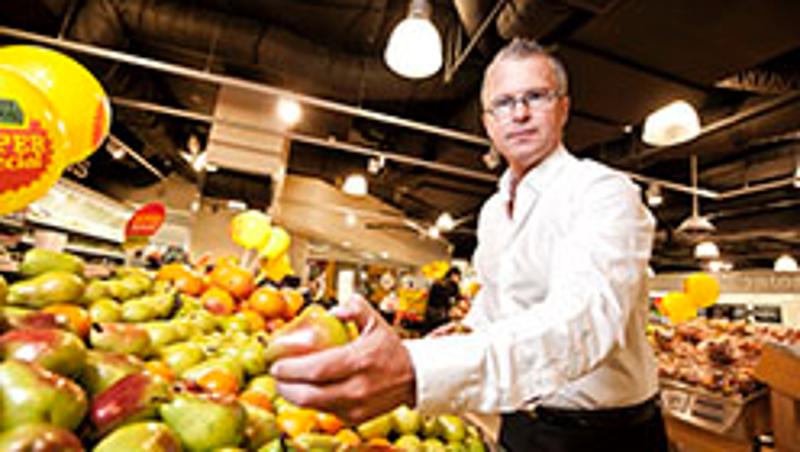
Aldi’s entry into the market has provided greater choice for shoppers, and also for suppliers, says QUT retail expert Associate Professor Gary Mortimer in response to Dick Smith’s claim Aldi will take ‘hundreds of millions of dollars’ out of the country.
“Whereas once Australian suppliers, hoping to drive volume, were forced to deal with Coles and Woolworths, Aldi is now a viable option,” Professor Mortimer, from QUT Business School, said.
“Due to the perishable nature of food and groceries, a large proportion of Aldi’s food range is sourced from local Australian suppliers.
“Mr Smith’s claim that Aldi is now one third the size of Coles is incorrect. Latest Ibisworld research shows Aldi’s projected revenue is $8 billion by December 2016, and Coles’ is just over $31 billion – Aldi is about a quarter the size of Coles.”
Professor Mortimer said the claim that Woolworths and Coles would have to replicate Aldi and move to around 90 per cent home brand products was not correct.
“Recent Nielsen data indicated the dollar share of supermarket private label products in Australia to be around 21 per cent.
“While 90 per cent is reasonable for food discounters like Lidl and Aldi, no major global supermarket retailer will ever move to that proportion.
“At best, in countries like Spain and Germany, we are seeing 50 per cent. However, this is skewed by the concentration of discounters in those countries.”
Mr Smith said Coles and Woolworths would reduce their product selection from more than 20,000 to just a few thousand, while sacking most of their Australian employees, Professor Mortimer said.
“While range rationalisation has happened in both major supermarkets, we won’t see 18,000 products vanish from the shelves of Coles and Woolworths any time soon," he said.
“Coles and Woolworths run very different operations from discounter Aldi. Staffing at a discounter is very much related to operational needs.
“An Aldi store is significantly smaller than a Coles or Woolworths. They don’t have in-store bakeries, delicatessens or butcheries.
“Accordingly, a smaller footprint will mean fewer staff. However, Aldi are aggressively expanding in the market place and, as such, more jobs will be created.
“Roy Morgan research shows only 8 per cent of Aldi shoppers shop ‘only at Aldi’, meaning 92 per cent shop at Aldi and other supermarkets, like Coles and Woolworths for other products."
Professor Mortimer said Mr Smith’s claim that lower food prices would lead to greater obesity in the population, lacked evidence.
“There is simply no correlation between Aldi’s growth in the market and the country’s health issues. In fact, Aldi has worked closely with suppliers to ensure all of their food items are free of artificial food colours.”
Media contact: Niki Widdowson, QUT Media, 07 3138 2999 or n.widdowson@qut.edu.au.
After hours: Rose Trapnell, 0407 585 901, or media@qut.edu.au




